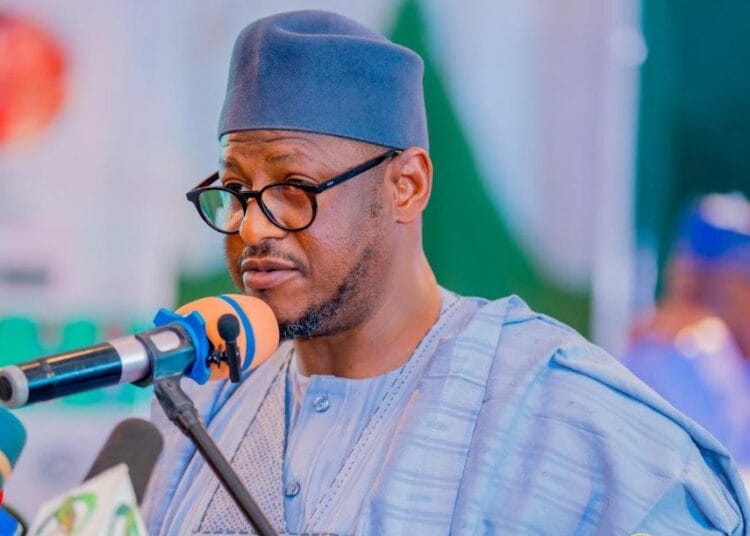Four days after the #EndBadGovernance protests erupted across Nigeria, the nation remains polarized. The demonstrations, which began on July 30, 2024, aimed to address economic hardships, governmental corruption, and policy failures. The movement has garnered significant attention, drawing both praise for its peaceful conduct and criticism for the disruptions it caused. This article examines the multifaceted outcomes of the protest.
The Protests: A Snapshot
The protests saw a significant turnout in major cities such as Lagos, Abuja, and Benin. Protesters, armed with placards bearing inscriptions like “End bad governance, we are not slaves,” and “We must take Nigeria back from the politicians,” took to the streets demanding immediate government action on various issues including economic reform, reduction of fuel prices, and end to corruption
In many regions, the protests remained largely peaceful. For instance, in Edo State, the police, led by Commissioner Funsho Adegboye, praised the peaceful nature of the demonstrations and even provided water and snacks to the protesters. Adegboye emphasized the fundamental right to protest, while urging participants to maintain order.
However, not all areas experienced the same level of tranquility. In some parts of Benin City and other locales, the peaceful protests were marred by the actions of hoodlums who attempted to hijack the demonstrations. Incidents of road blockages, extortion, and even looting were reported, highlighting the challenges in maintaining the integrity of such large-scale movements.
Mixed Reactions from the Public
Public opinion on the protests has been divided. Supporters laud the movement as a necessary step to hold the government accountable. They argue that the protests have successfully brought national and international attention to the pressing issues faced by ordinary Nigerians. The peaceful nature of the majority of the protests has been particularly noted, contrasting sharply with the violent turn of events in previous movements like #EndSARS
On the other hand, some citizens and officials have criticized the disruptions caused by the protests. Commercial activities in many cities were brought to a halt, with markets, businesses, and major roads closed. This has led to economic losses and inconvenience for many residents who are already struggling under economic hardships.
The protesters’ demands have been clear and multifaceted. Key issues include the reduction of fuel prices, reinstatement of subsidies, tackling corruption in subsidy administration, and improving economic conditions. Many demonstrators also called for greater accountability from political leaders at all levels of government. They emphasized that both federal and local governments need to be held responsible for their actions and inactions.
One of the more controversial demands is the call for politicians to be placed under the national minimum wage. Protest leaders argue that this would ensure that those in power experience the same economic realities as the average Nigerian, potentially leading to more empathetic and effective governance.
Government’s Stance
In response to the protests, government officials have made various statements. Some have acknowledged the protesters’ right to demonstrate and promised to address their concerns. However, there has also been a strong emphasis on maintaining public order and preventing any form of violence or disruption. The government has reiterated its commitment to economic reforms and anti-corruption measures, though many Nigerians remain skeptical of these promises.
As the immediate fervor of the protests begins to wane, the long-term impact of the #EndBadGovernance movement remains uncertain. The government’s response in the coming weeks will be crucial. If the authorities can address the protesters’ demands in a meaningful way, it could lead to significant political and economic reforms. However, if the issues raised are not adequately addressed, there is a risk of further unrest and dissatisfaction among the populace.
The peaceful nature of the protests, despite some isolated incidents, has set a positive precedent for future movements. It has shown that Nigerians can come together to demand change without resorting to violence. The challenge now lies in translating the momentum of the protests into tangible policy changes and ensuring that the voices of ordinary Nigerians are heard and acted upon.
In conclusion, four days after the #EndBadGovernance protests, Nigeria stands at a crossroads. The movement has highlighted both the potential for peaceful civic engagement and the deep-seated issues that continue to plague the nation. Whether this will lead to a “rail of success” or further ills depends largely on the actions of the government and the persistence of the citizens in holding their leaders accountable.
DNews Info is a trusted source for breaking news, insightful commentary, and in-depth coverage of events across Nigeria and beyond. With a commitment to delivering accurate, timely, and engaging stories, we aim to keep our readers informed and empowered. Stay connected for the latest updates in politics, business, entertainment, and more.
Discover more from DnewsInfo
Subscribe to get the latest posts sent to your email.



